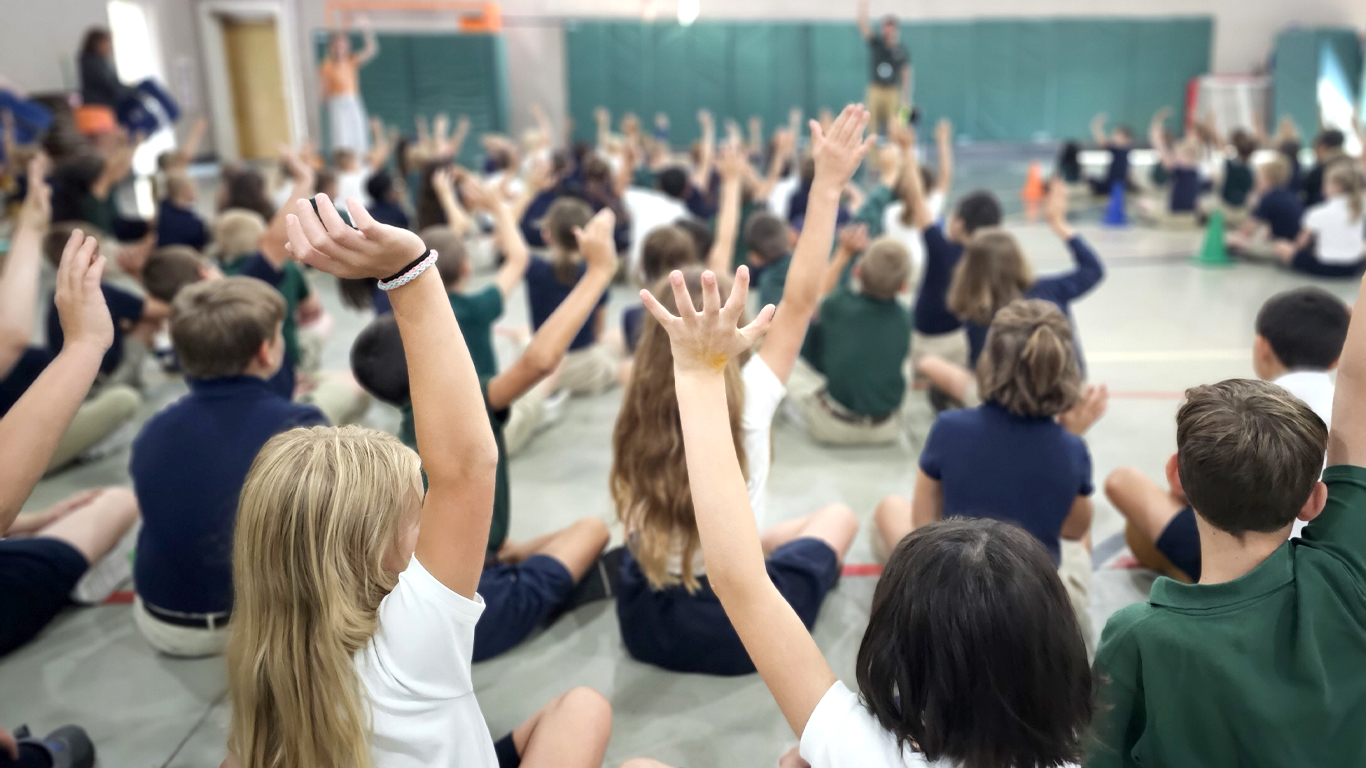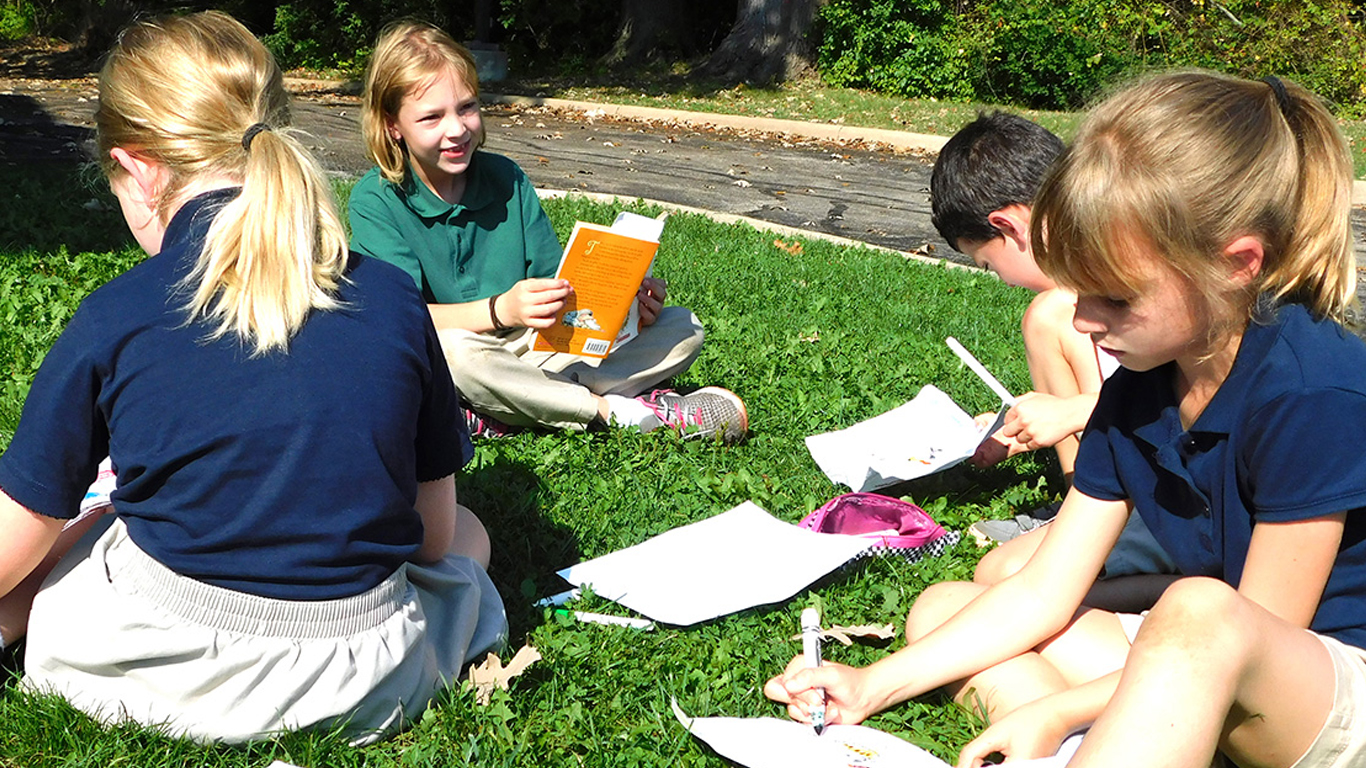“Why does a Christian school spend so much time on mythology and ancient pagan cultures?”
I have heard this question many times in various forms and each time I answer it, I myself grow more deeply convicted that we must teach these myths purposefully, not squandering their ability to capture the imaginations of our students and engage them in the cosmic clash of good verses evil.
Beginning in second grade, our students embark on a journey through history through the eyes of many pagan cultures: the mysterious world of the ancient Egyptians, the pantheon of immortal but highly imperfect Greek and Romans gods, the gruesome Norse tales or the romanticized knights and legendary dragons of the Middle Ages.
At first glance it seems counterintuitive that our quest for the true, good, and beautiful could be furthered by wading into tales that are false, ugly and oftentimes terrible. The confusion begins to dissipate when we see that there is, at the core of all mythology, a desire for humans to understand and explain themselves and the world around them, therefore, all mythology contains elements of truth, albeit marred by our humanness. There is a longing and a yearning for something higher than ourselves which has been felt since Creation that no man can ignore. Mythology is an expression of that desire.
Without special revelation, like that of Israel, cultures across time and space have ascertained some basic truths through general revelation, such as: there is a higher power than us, we were created, we are not inherently good and we need a hero, a rescuer, a Savior. Those are deeply beautiful truths and can be found in cultural myths throughout recorded history. Some stories even align so spectacularly with truth that it seems God surely must have written them into the hearts of men. For example, I cannot read the myth of Pandora’s Box and ignore the echoes of Eve, a woman, who through curiosity and disobedience to her creator, brought every manner of evil into the world, but also the hope of redemption from those very things.
Mythology is filled with these shadows of reality, hollow echoes of truth, warped but sincere attempts to explain the supernatural. In exploring the origins of humanity, acknowledging the reality of sin in our world, and recognizing our need for a hero to save us from it, we learn that truth is written in our hearts so deeply that we are often unaware. If sin became part of the human form in the garden, is it so surprising that with it came some dim, unfocused, longing; a sense of that world we lost, the one that was as it was designed to be?
Children feel a longing for a perfect world just as the ancients did. They grieve over unfairness and injustice in our world. Like the ancients, they also live in a world they do not understand and can connect with the feelings of confusion and a desire to comprehend the unexplained. They learn well through stories just as the ancients did. They are capable of extracting great truth from works of fiction.
When the modern church sought to establish credibility with the world, our focus on logic, reason, facts, and apologetics became central to the Christian walk. While these things are good and proper and support truth, they have taken the spotlight and at times refuse to share it with faith, wonder, and dare I say, the “magic” of our supernatural heavenly Father and His sacrificial lamb who came to offer salvation to the world.
C.S. Lewis inspired many of us to go through the wardrobe with him and recall the power of fictional wonder and magic to carry the weight of real truth. The leap to allow the same from pagan fictional stories can be a scary one. It is a necessary leap, however, our students seek to understand human nature and the cultures juxtaposed with the church throughout history. We do not seek to disciple students in a bubble — untouched by the world they are commissioned to serve —- but instead in a greenhouse, exposed with great care to the elements, until they are strong enough to withstand them alone. By teaching students at a young age to discern truth and beauty from ancient, fictional, pagan works, we send roots into the ground that will withstand the shaking of modern, fictional, pagan ideas that will surround them as young adults.
So the next time you peak into a class of 4th graders reading Beowulf or hear 3rd graders recount the Myth of the Minotaur remember that there is a skilled pilot at the helm of these stories, steering them through the murky waters to discern truth, beauty, and goodness in or in contrast to the ideas contained within.







